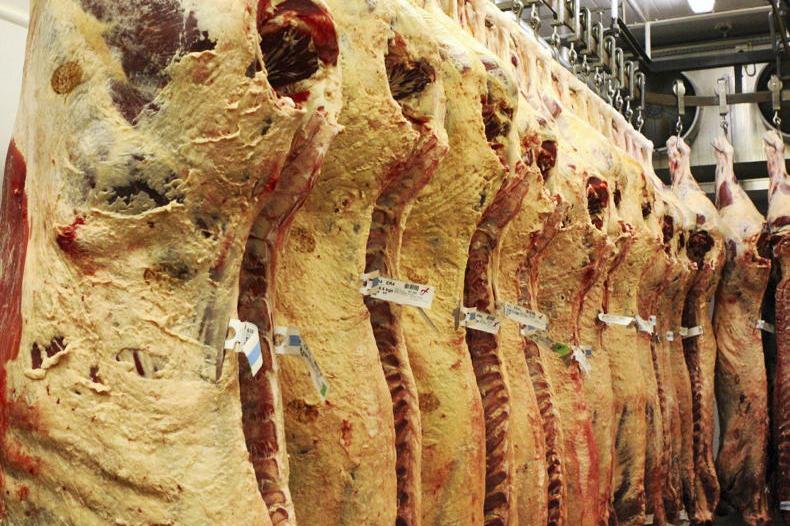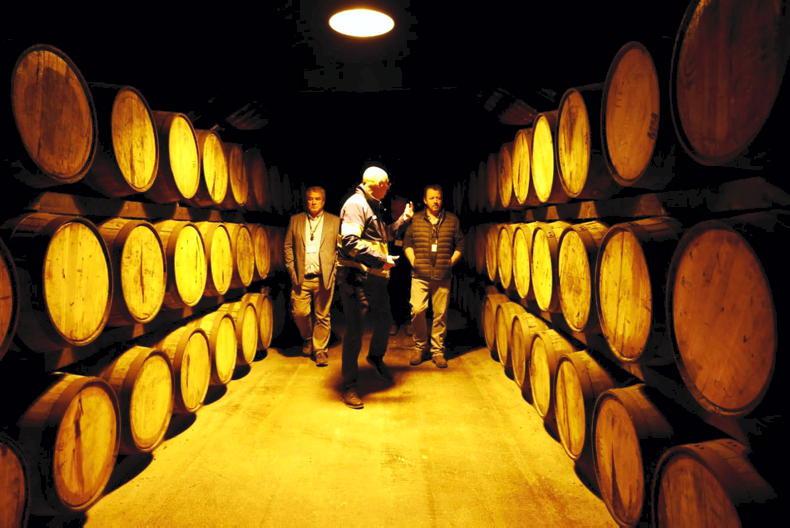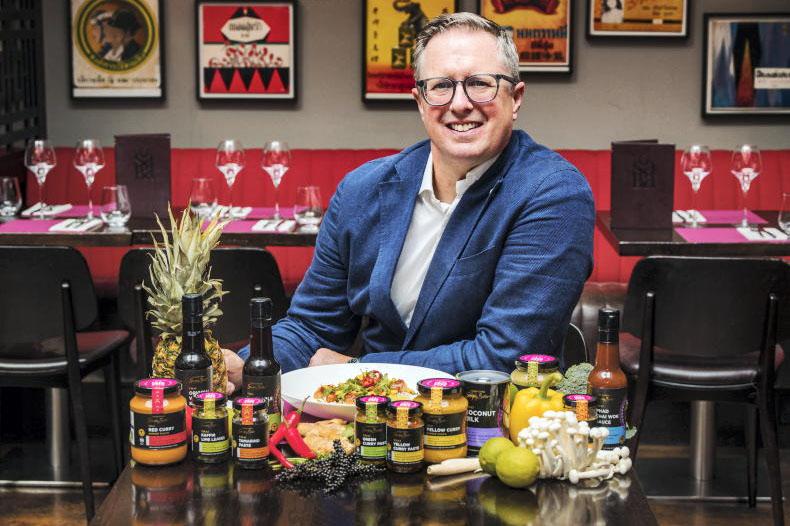In recent weeks, we have seen the image of our industry portrayed negatively on a number of fronts. These ranged from debates questioning the health implications associated with the consumption of whey protein, the impact of meat and dairy production on the environment and – most recently – animal welfare issues associated with live exports.
Few could, with any credibility, dispute that all are relevant topics in the eyes of an increasingly health- conscious consumer who expects Irish food to be safe and produced to the highest welfare and environmental standards in the world. We should therefore accept that there is a role for the wider media to provide a platform for such debates.
However, what we should not accept are ill-informed debates that are unbalanced and absent of fact and/or scientific evidence. Unfortunately, there appears to be a belief in some sectors of the media that those most active and/or vocal on social media channels are somehow best positioned to represent our industry and inform the debate.
Farmers and the wider food industry are entitled to expect that media outlets use properly informed spokespeople when seeking to present balanced debate on issues.
Nevertheless, we cannot lay blame totally at the doorstep of national media. There has been a notable silence from industry organisations that are equipped with the scientific and technical knowledge to articulate the case on behalf of industry. This is despite having evidence at our finger tips with which to put forward a strong defence. Facts that clearly show:
The health benefits of increased whey protein consumption in the diets of the elderly to aid the replacement of lost muscle mass.Our industry has one of the most environmentally sustainable food production models in Europe, the most efficient dairy model and the fifth-most efficient beef model in terms of carbon emissions.The regulations in place, combined with the desire among Irish farmers, to ensure we operate to the highest welfare standards in the world.As an industry, we need to become much more efficient at communicating this information to ensure agriculture is portrayed correctly. It is not about shouting down those with alternate views or trying to alienate their position. Instead, it is about engagement: fostering a relationship whereby those with alternate views can gain an appreciation of what Irish food production represents and that we can take on board reasonable concerns raised. We can no longer assume the entire population has a sufficient connection with farming to appreciate its qualities and dismiss challenges as irrelevant or the work of cranks. That may have been the case 20 years ago but it is no longer true as we become more urbanised and multicultural.
The events of the past few weeks have shown just how important it is that our industry – at farm and processing level – does not take public perception for granted. We have seen the efforts the agri sector in the UK has gone to over the past decade to win back public support and understanding after the BSE and foot-and-mouth crises. While Irish farming is no doubt starting from a much stronger position, some of the initiatives taken should still be considered. Why not have a national open day inviting the general public on to our farms to view first-hand the standards, pride and effort associated with Irish food production?
At industry level, we need a much more organised approach when it comes to building and protecting the image of our sector, both within the mainstream media and across social media. Bord Bia is ideally positioned to take on such a role as the brand guardians of our food industry. For technical debate, it should be able to call on Teagasc and the universities to provide either the scientific data or directly engage.
The public perception of our industry at home is something we cannot afford to take for granted – especially in the context of the growth ambitions we have for the various sectors. The case for the quality and compliance of our industry, to be at the highest standards, cannot be allowed to fail because of insufficiently informed contributions made on behalf of the industry. Being well motivated isn’t enough to make the case without the relevant knowledge.
In recent weeks, we have seen the image of our industry portrayed negatively on a number of fronts. These ranged from debates questioning the health implications associated with the consumption of whey protein, the impact of meat and dairy production on the environment and – most recently – animal welfare issues associated with live exports.
Few could, with any credibility, dispute that all are relevant topics in the eyes of an increasingly health- conscious consumer who expects Irish food to be safe and produced to the highest welfare and environmental standards in the world. We should therefore accept that there is a role for the wider media to provide a platform for such debates.
However, what we should not accept are ill-informed debates that are unbalanced and absent of fact and/or scientific evidence. Unfortunately, there appears to be a belief in some sectors of the media that those most active and/or vocal on social media channels are somehow best positioned to represent our industry and inform the debate.
Farmers and the wider food industry are entitled to expect that media outlets use properly informed spokespeople when seeking to present balanced debate on issues.
Nevertheless, we cannot lay blame totally at the doorstep of national media. There has been a notable silence from industry organisations that are equipped with the scientific and technical knowledge to articulate the case on behalf of industry. This is despite having evidence at our finger tips with which to put forward a strong defence. Facts that clearly show:
The health benefits of increased whey protein consumption in the diets of the elderly to aid the replacement of lost muscle mass.Our industry has one of the most environmentally sustainable food production models in Europe, the most efficient dairy model and the fifth-most efficient beef model in terms of carbon emissions.The regulations in place, combined with the desire among Irish farmers, to ensure we operate to the highest welfare standards in the world.As an industry, we need to become much more efficient at communicating this information to ensure agriculture is portrayed correctly. It is not about shouting down those with alternate views or trying to alienate their position. Instead, it is about engagement: fostering a relationship whereby those with alternate views can gain an appreciation of what Irish food production represents and that we can take on board reasonable concerns raised. We can no longer assume the entire population has a sufficient connection with farming to appreciate its qualities and dismiss challenges as irrelevant or the work of cranks. That may have been the case 20 years ago but it is no longer true as we become more urbanised and multicultural.
The events of the past few weeks have shown just how important it is that our industry – at farm and processing level – does not take public perception for granted. We have seen the efforts the agri sector in the UK has gone to over the past decade to win back public support and understanding after the BSE and foot-and-mouth crises. While Irish farming is no doubt starting from a much stronger position, some of the initiatives taken should still be considered. Why not have a national open day inviting the general public on to our farms to view first-hand the standards, pride and effort associated with Irish food production?
At industry level, we need a much more organised approach when it comes to building and protecting the image of our sector, both within the mainstream media and across social media. Bord Bia is ideally positioned to take on such a role as the brand guardians of our food industry. For technical debate, it should be able to call on Teagasc and the universities to provide either the scientific data or directly engage.
The public perception of our industry at home is something we cannot afford to take for granted – especially in the context of the growth ambitions we have for the various sectors. The case for the quality and compliance of our industry, to be at the highest standards, cannot be allowed to fail because of insufficiently informed contributions made on behalf of the industry. Being well motivated isn’t enough to make the case without the relevant knowledge.










SHARING OPTIONS